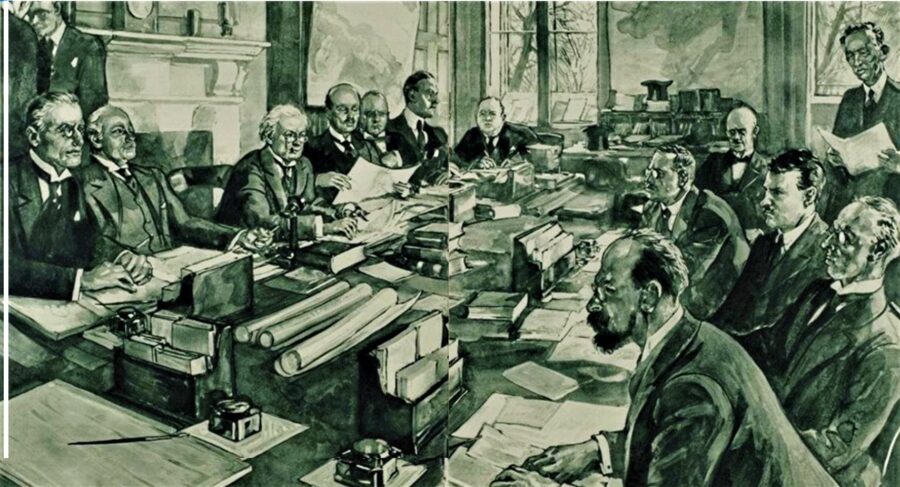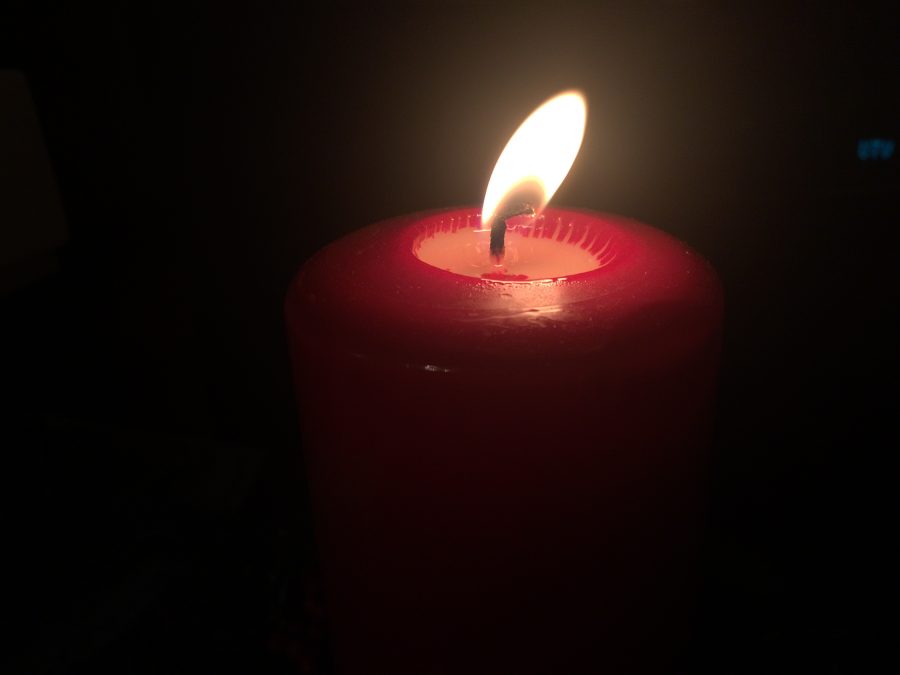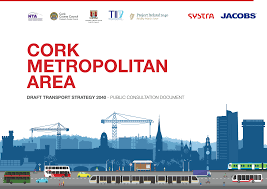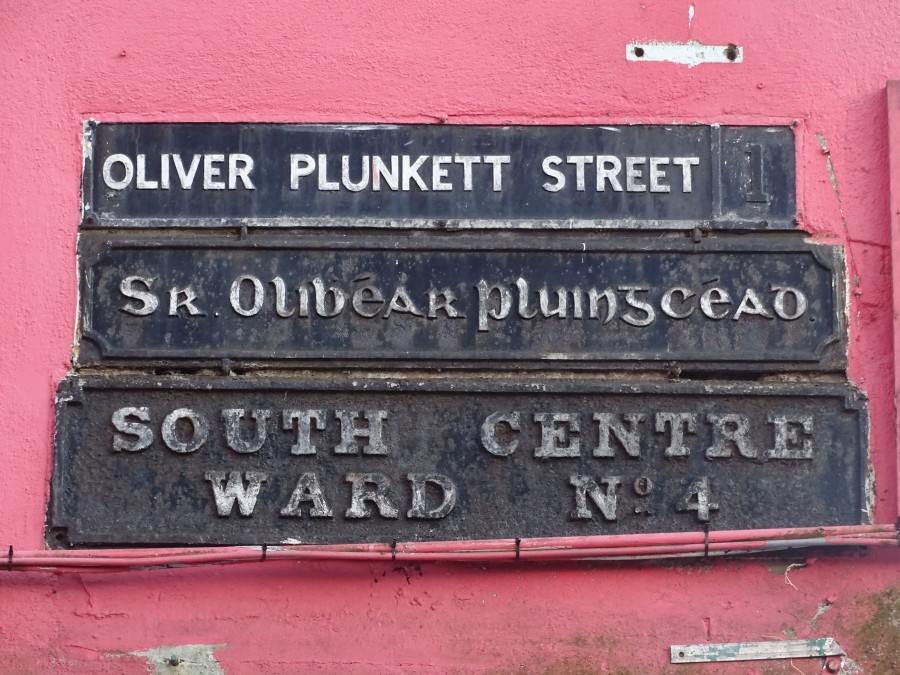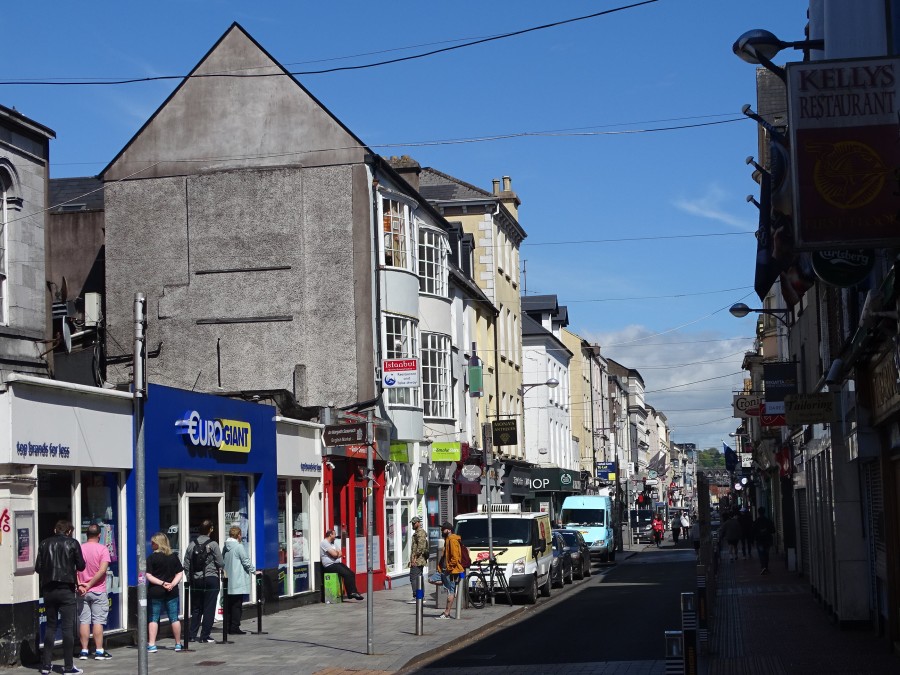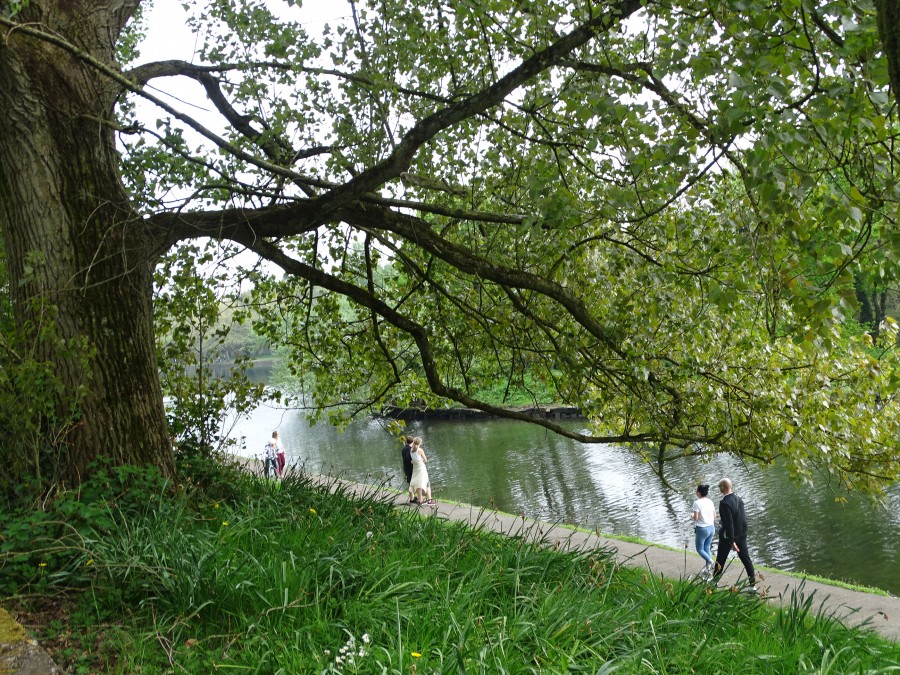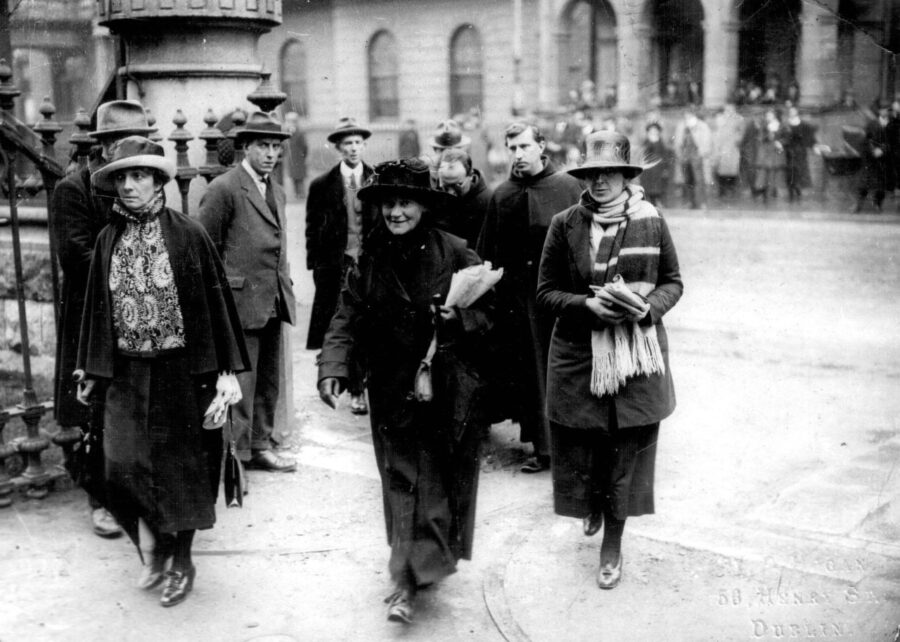
Kieran’s Our City, Our Town Article,
Cork Independent, 20 January 2022
Journeys to a Free State: Mary MacSwiney Speaks
Last week’s column highlighted the Treaty vote that was taken and the intervention of Cork TD Mary MacSwiney expressing her disappointment and full support for the ideals of Éamon de Valera. Mary MacSwiney was one of the earliest speakers to take the floor on the Treaty debate. She intervened just after the vote on 7 January and remained vocally against the Treaty for years to come. She first took the floor on Wednesday 21 December 1921. A transcript of her passionate, very detailed, well thought out, articulate and highly frank intervention comes to over 15,500 words. She spoke at length for two hours and forty minutes. The full speech can be viewed under Treaty debates at Oireachtas.ie.
Mary’s speech expressing her opinions varied across a range of topics, from noting the Treaty was just like creating a renewed Act of Union to not trusting the Westminster administration, to the Treaty being a betrayal of the principles of Irish Republicanism, to being highly critical of the oath and the role of the Governor General. A case can be made that her speech galvanised the more die-hard Republican side of Dáil Éireann in voting against the Treaty. Certainly, the points she makes are almost like a manifesto for the Republican cause. Her points were raised by others against the Treaty – not in the same level of detail – as the Treaty debate evolved and concluded in early January 1921.
Mary opened her speech by commenting on the idea that the ratification of the Treaty document would create a quasi-Grattan’s Parliament or a Home Rule situation, something that would not represent everyone from north to south and was not total freedom. She argued that such a parliament was not a parliament of the people. She noted: “Grattan’s Parliament was a Parliament representing, or supposed to be representing, only one-fifth of the people of Ireland, and even then, by means of undemocratic elections. It did not faithfully represent even 20 per cent of the Irish people”.
A second core point made by Mary was that in her opinion those in the Dáil chamber were there on the will of the people expressed in a vote in December 1918 – that the assembly was elected on a Republican cause. She noted: “Therefore, this assembly is not, as has been already pointed out, competent to deal with the matter at all. We are not the Members elected to sit in the Parliament of Southern Ireland. We are the Members elected to sit in the assembly of the Irish Republic”.
At times in Mary’s speech, it could be argued that she crossed the line in calling Deputies and the Westminster government out. On Prime Minster Lloyd George, she articulates that he cannot be trusted. She notes: “As far as we in Ireland are concerned, the office which he holds never has been an honourable office, but in his own country it is supposed to be so. And never has a more unscrupulous scoundrel sat in the seats of the mighty than Lloyd George. There is no Government in Europe that trusts his word”.
On the First World War, she regretted that Irish citizens took a part in it and noted that Ireland was led to approve the war. She notes: “The country was stampeded into approval of the war. I was in England when the war broke out. I could not tell you the anguish of souls I experienced when I came home and walked down the streets of Dublin and of Cork and saw the friends of my lifetime sporting the Union Jack…we were not British by the act of our own people. Even then we had not declared common citizenship, with fidelity to the King of England”.
Following her thoughts on the First World War, she noted that the 1916 Easter Rising stood out in the annals of the world. She noted: “A small minority of the people of Ireland realised that they had to strike, and strike at once, that if they waited for the war to be over England would have her countless legions turned against us. They decided on rising; that rising was largely rendered futile by the acts of people at the last moment who tried to stop it. Yet the battle was fought, and Easter Week, 1916, stands out in the annals of the world”.
On the Articles of Agreement/ Treay, Mary argues that the document will not create peace and that unity alone can bring peace. She notes: “The men with the stake in the country know perfectly well that as long as we Republicans stand out and say this is not peace, and it will not make peace, there will be no peace, and the men with the stake in the country will know perfectly well that unity alone can defeat this awful breach now”.
Mary was also critical of the idea that the Irish delegation to the Treaty negotiations were unable to put in amendments – that the threat of war hung over the proceedings; She expressed the viewpoint: “It is the sympathy of the world and the judgment and conscience of the world that brought England to her knees in these negotiations. She has the military. I know that, but she cannot win this battle, for if she exterminates the men, the women will take their places, and, if she exterminates the women, the children are rising fast…Therefore our fight to-day has a chance of victory. You have told us it is between the acceptance of that document and war. If it were, with every sense of deep responsibility, I say then let us take war”.
Mary touched upon a range of other topics also but ultimately concluded her speech with an appeal for the Treaty to be rejected: “I pray that we will stand together, and the country will stand behind us. I have no doubt of that. I know the women of Ireland, and I know what they will say to the men that want to surrender, and therefore I beg of you to take the decision to throw out that Treaty. Register your votes against it, and do not commit the one unforgivable crime that has ever been committed by the representatives of the people of Ireland”.
Cork TD Mary MacSwiney’s full speech can be read at www.oireachtas.ie/en/debate/dail/1921-12-21/2/
Missed one of the 51 columns in 2021, check out the indices at Kieran’s heritage website, www.corkheritage.ie
Caption:
1134a. Mary MacSwiney (centre) entering the Treaty debate buildings at Dublin’s University Buildings, Earlsfort Terrace, late December 1921 (picture: Hogan collection, National Library of Ireland).
